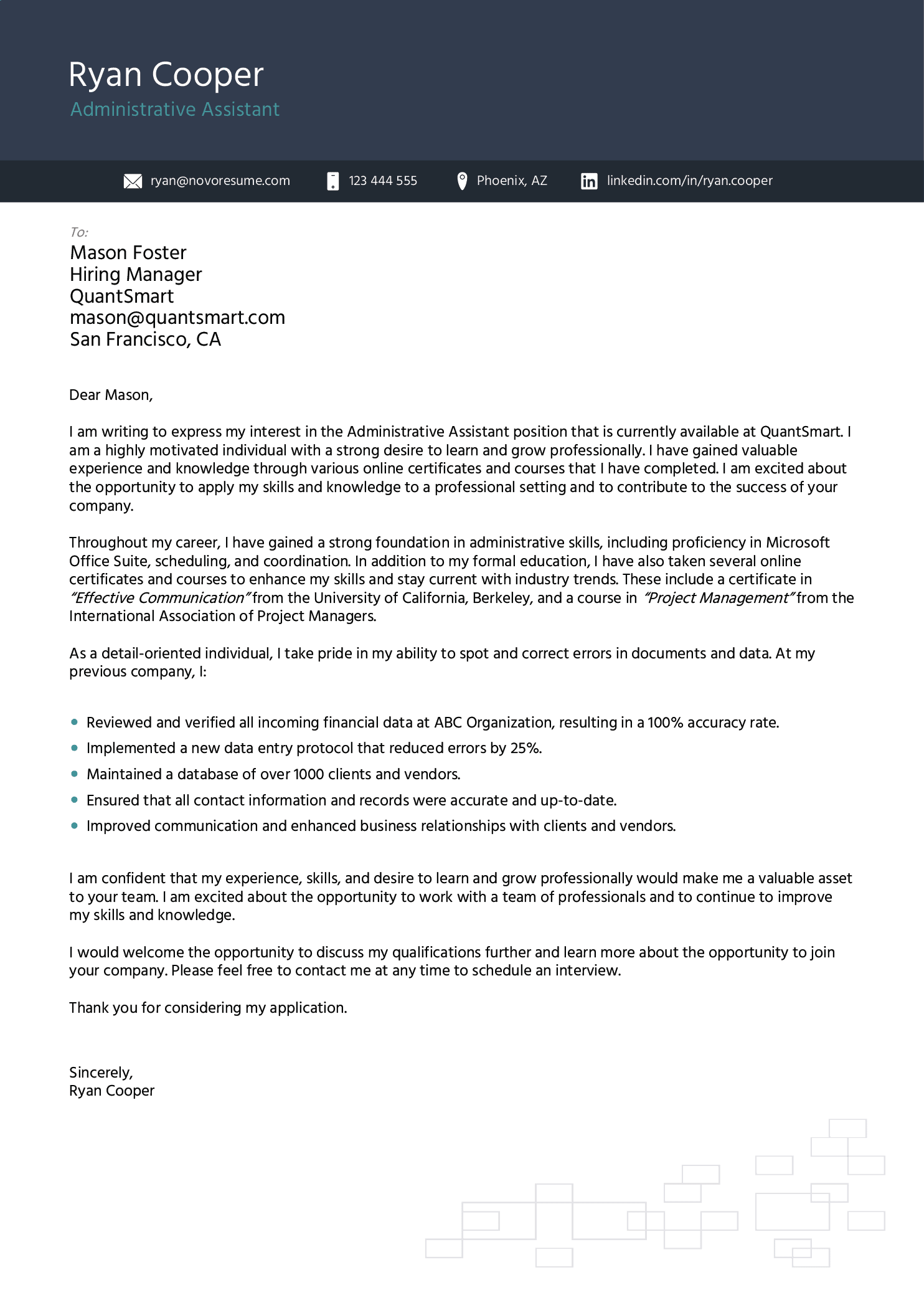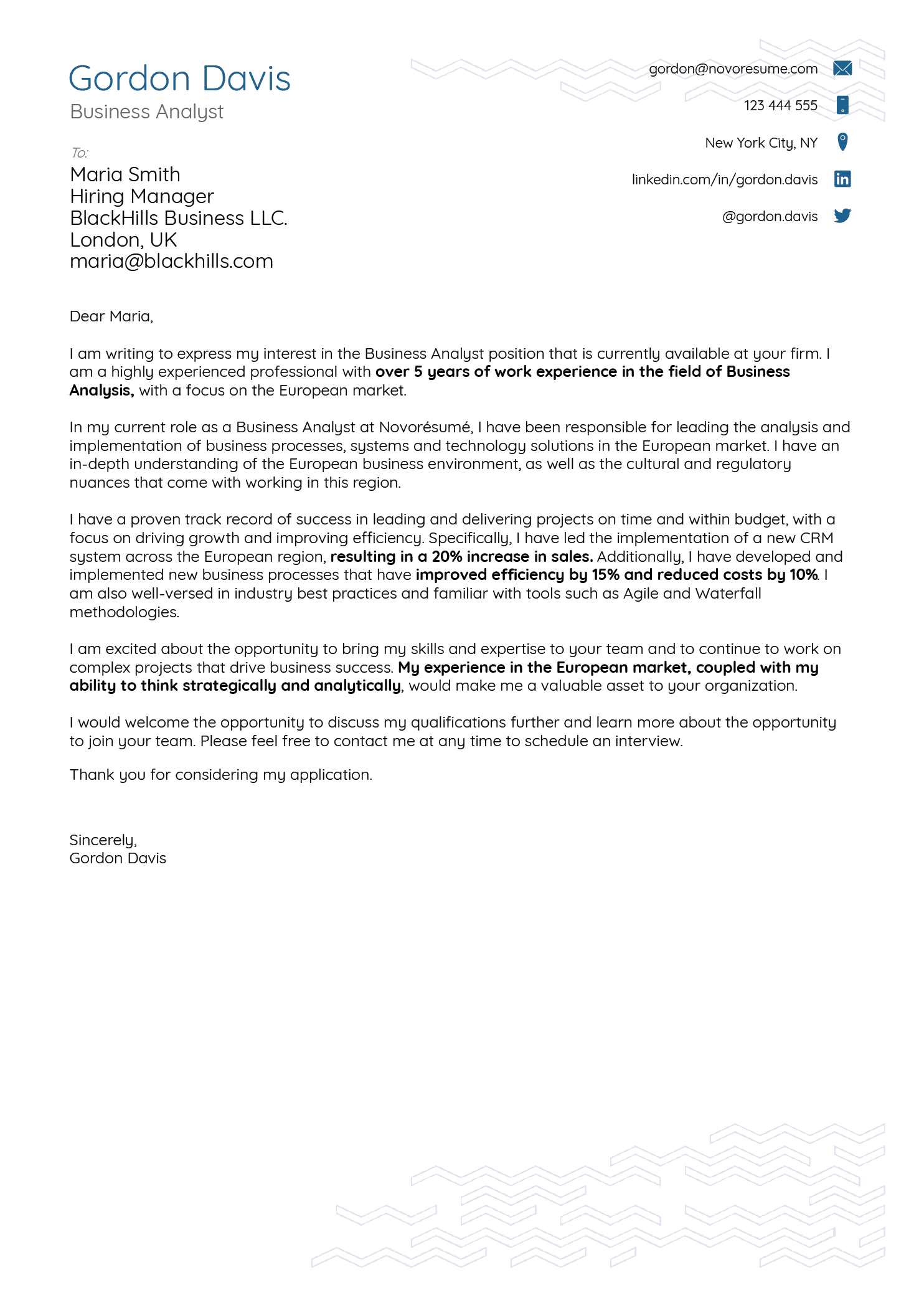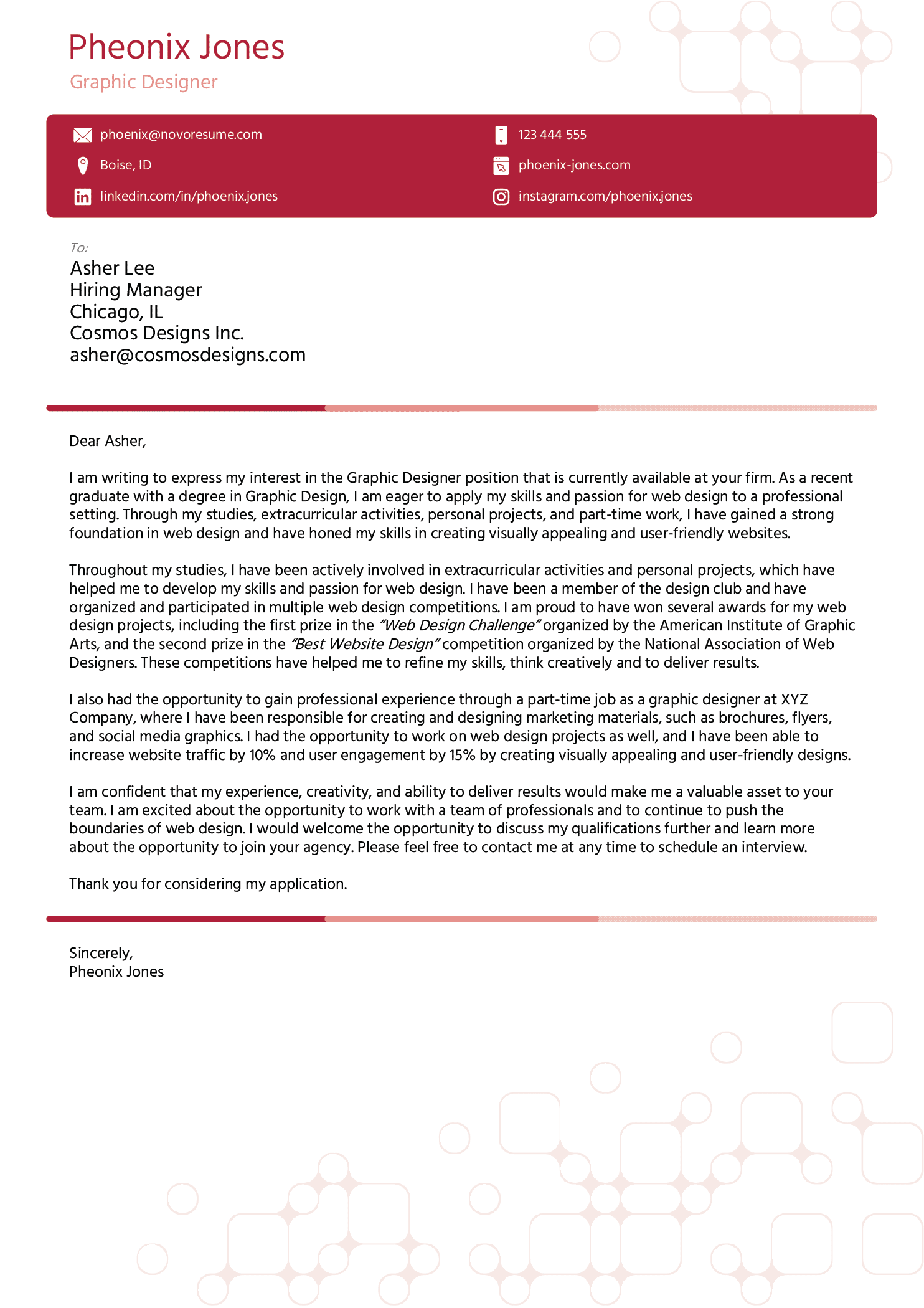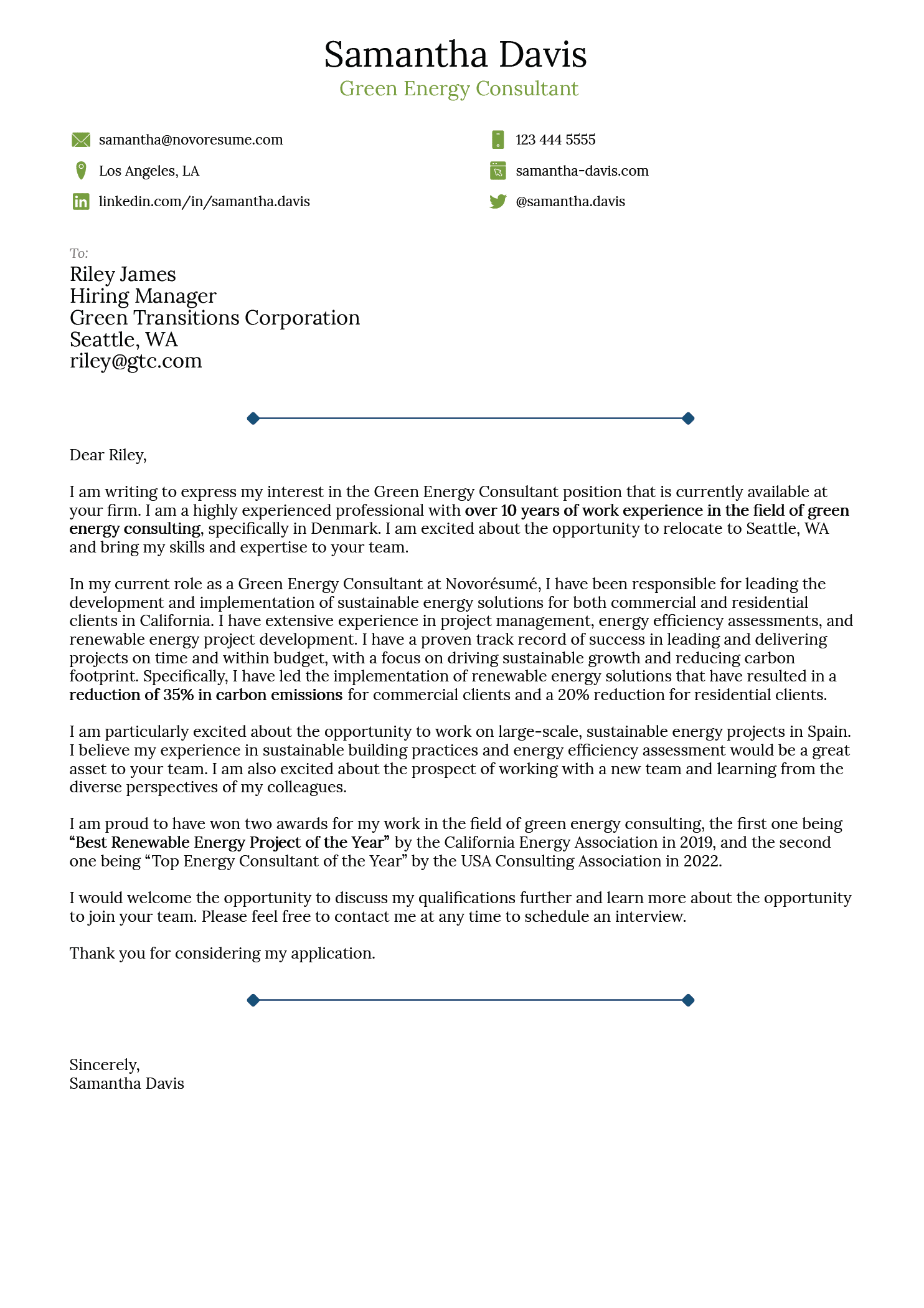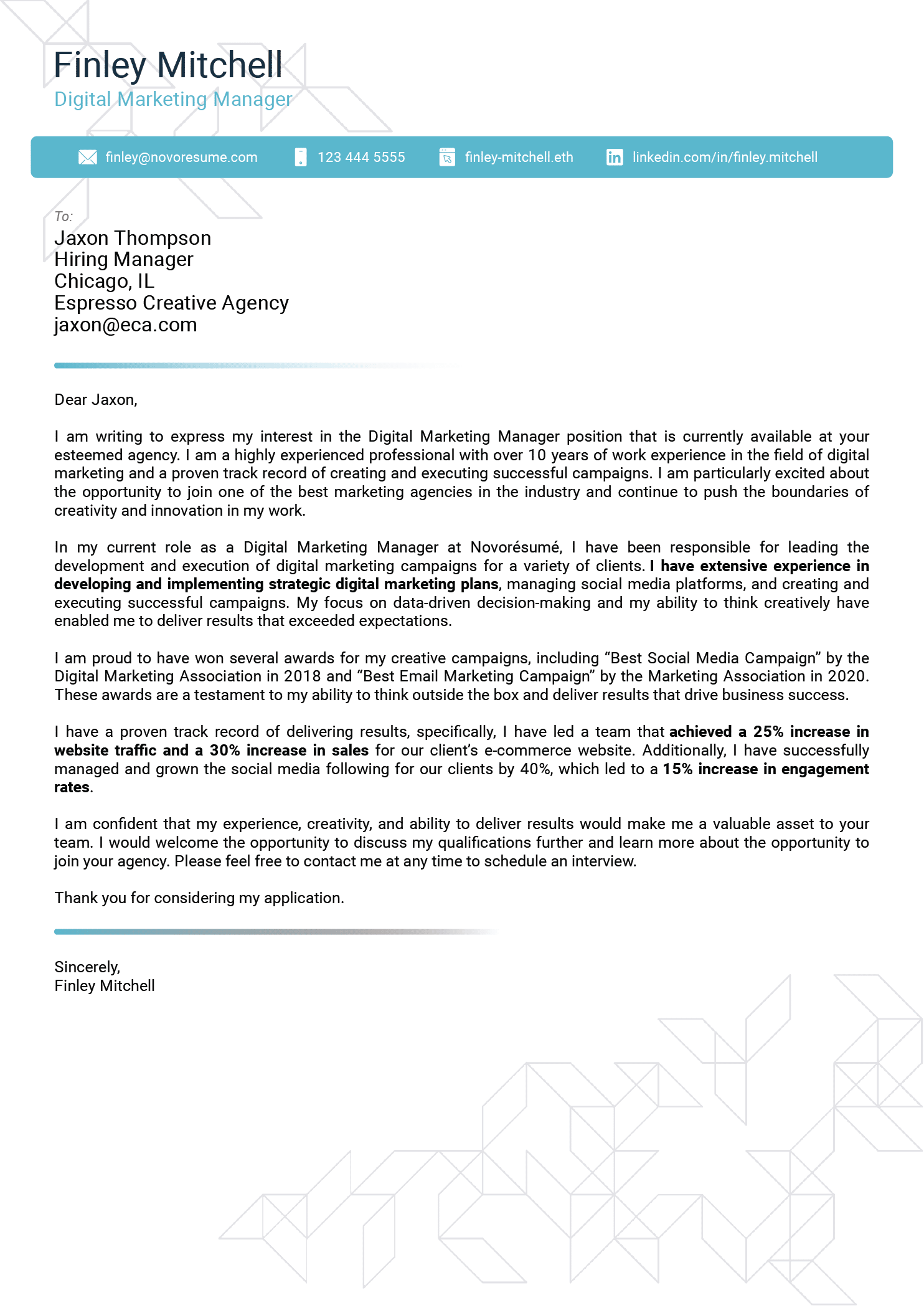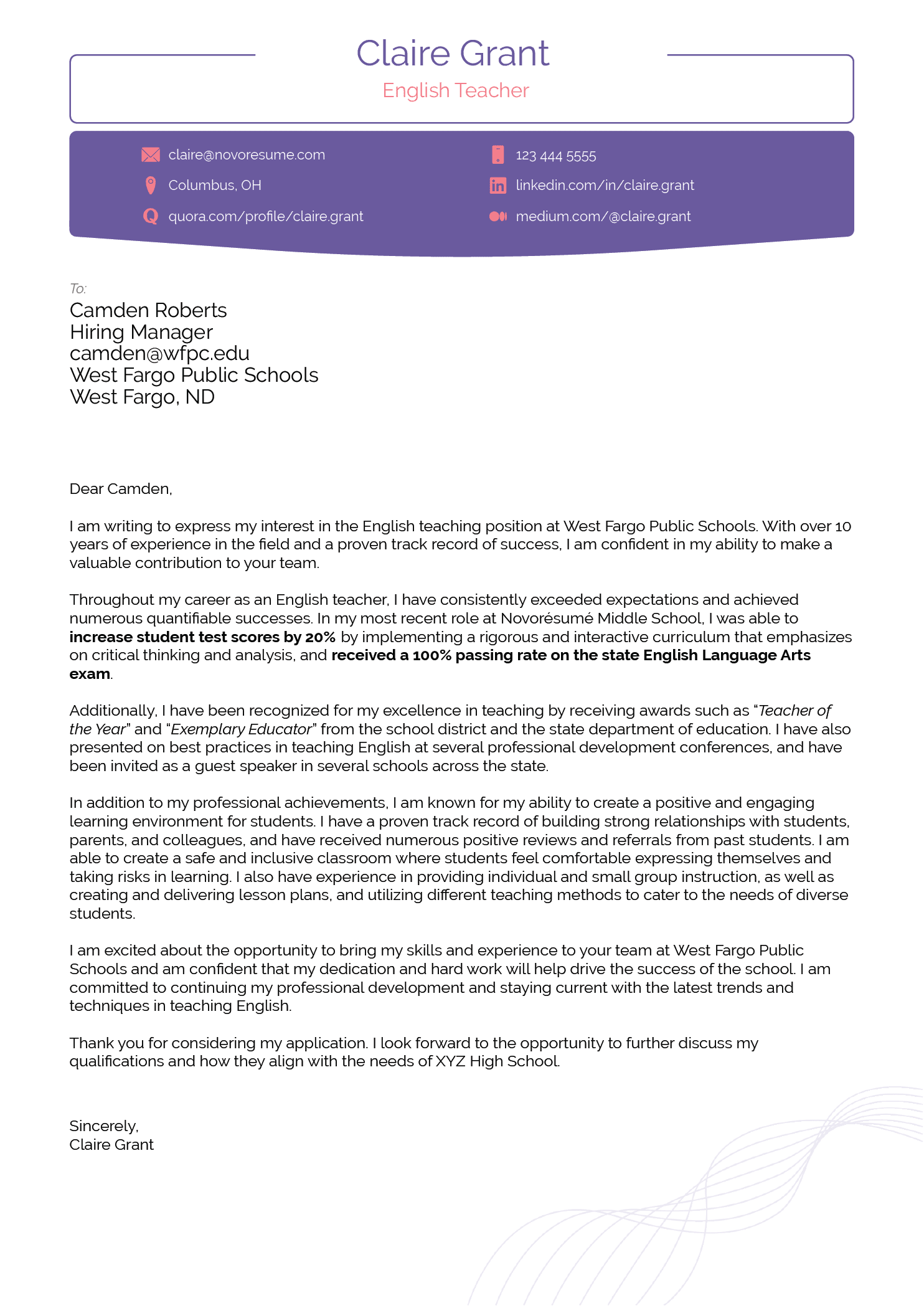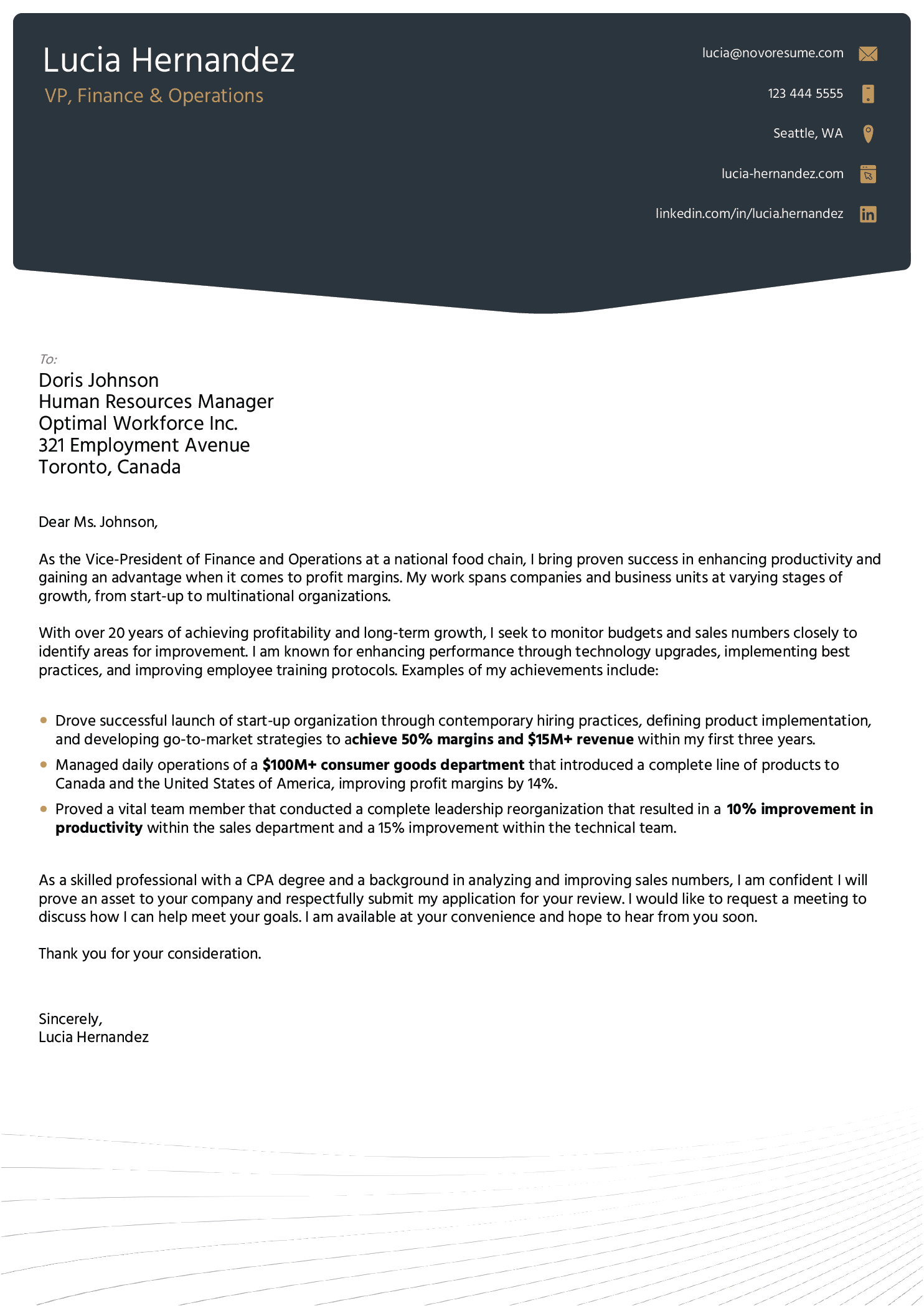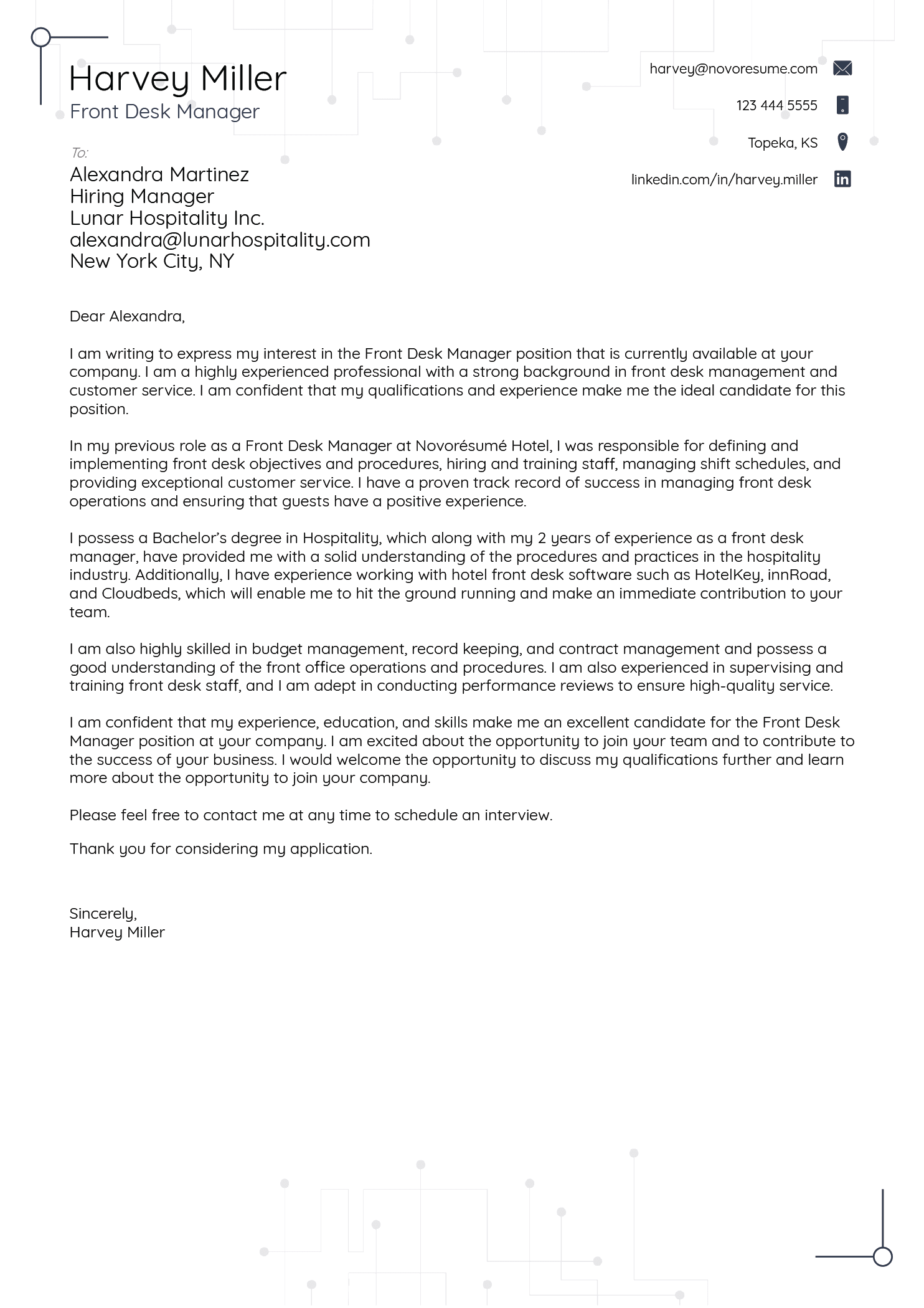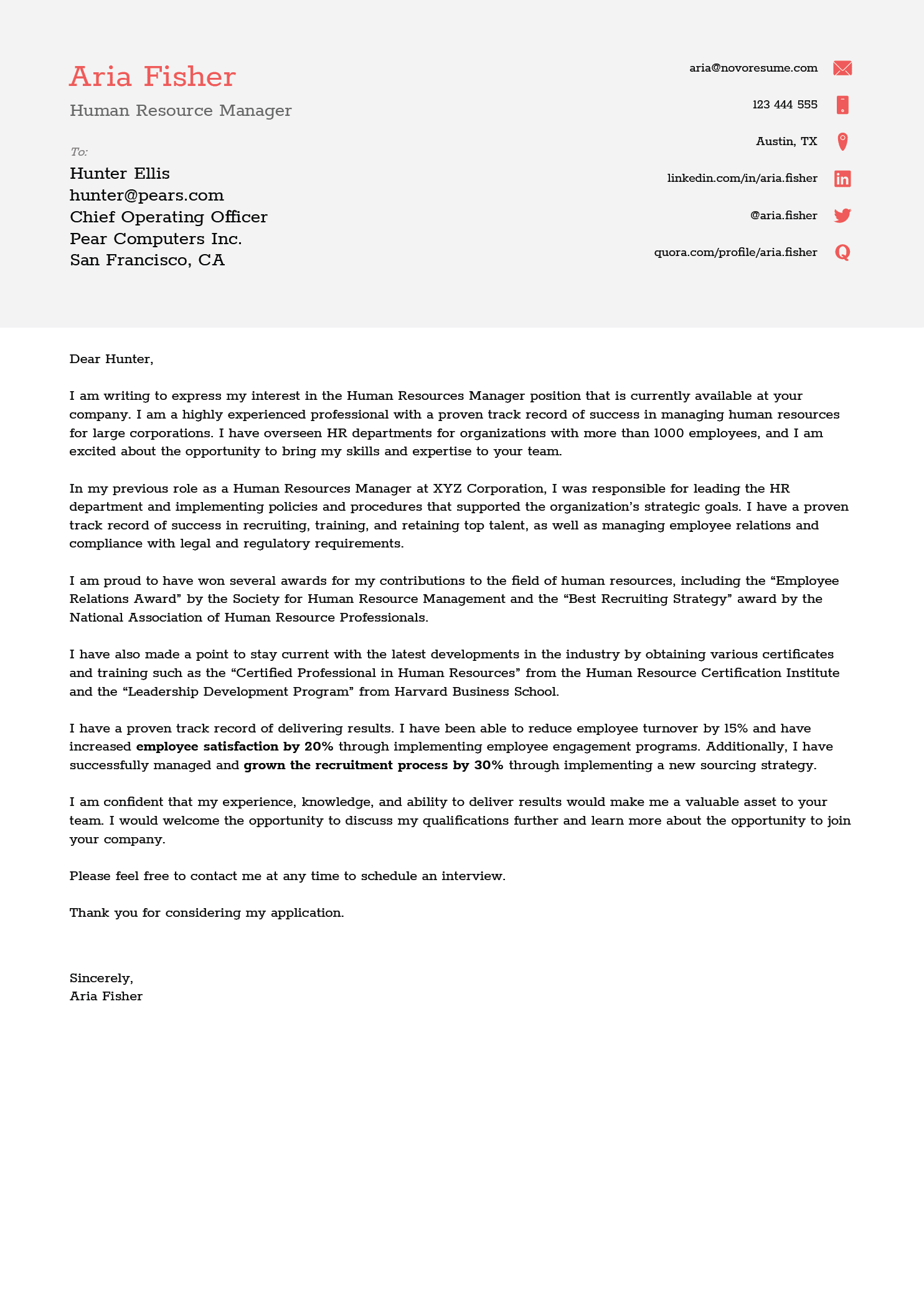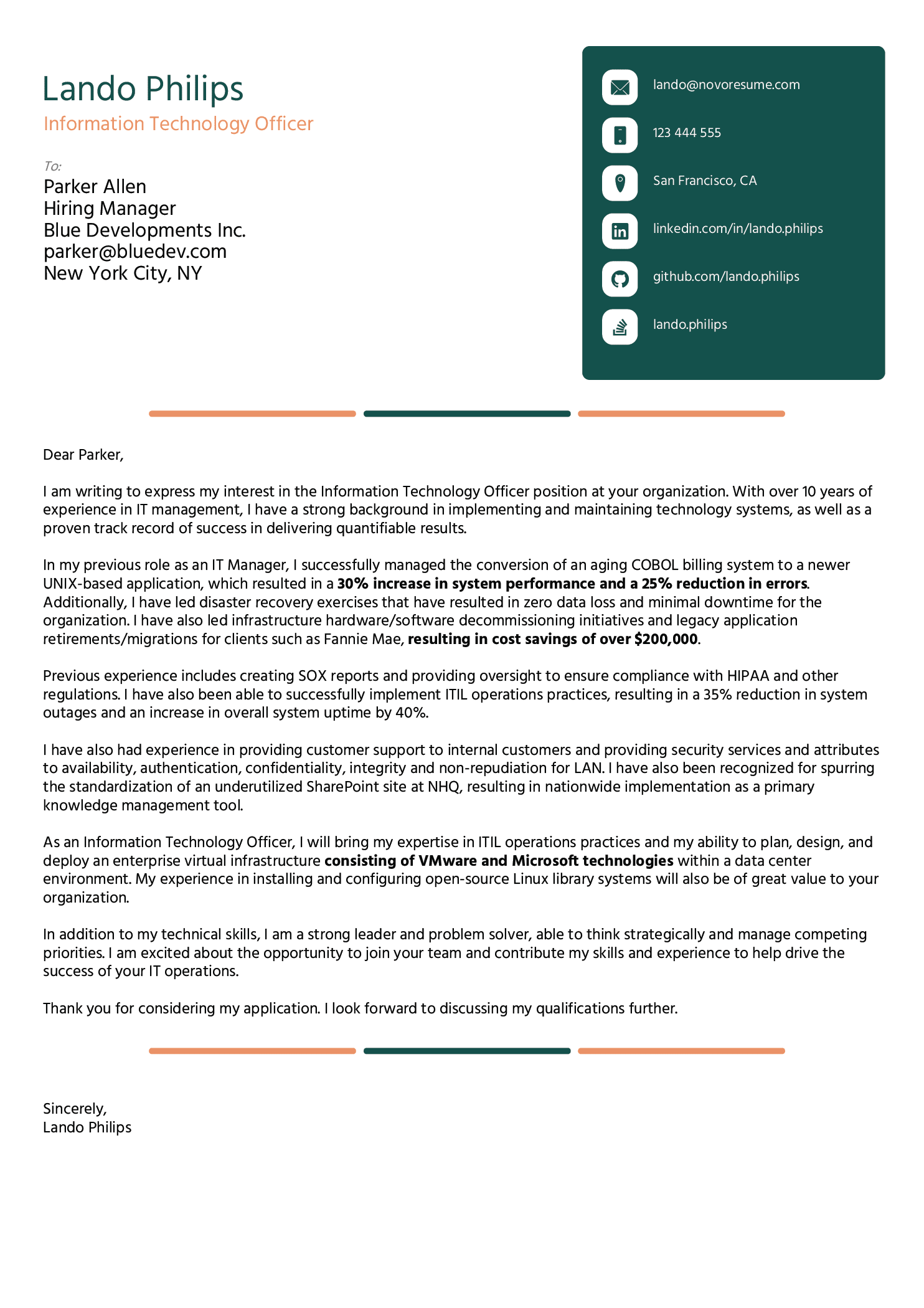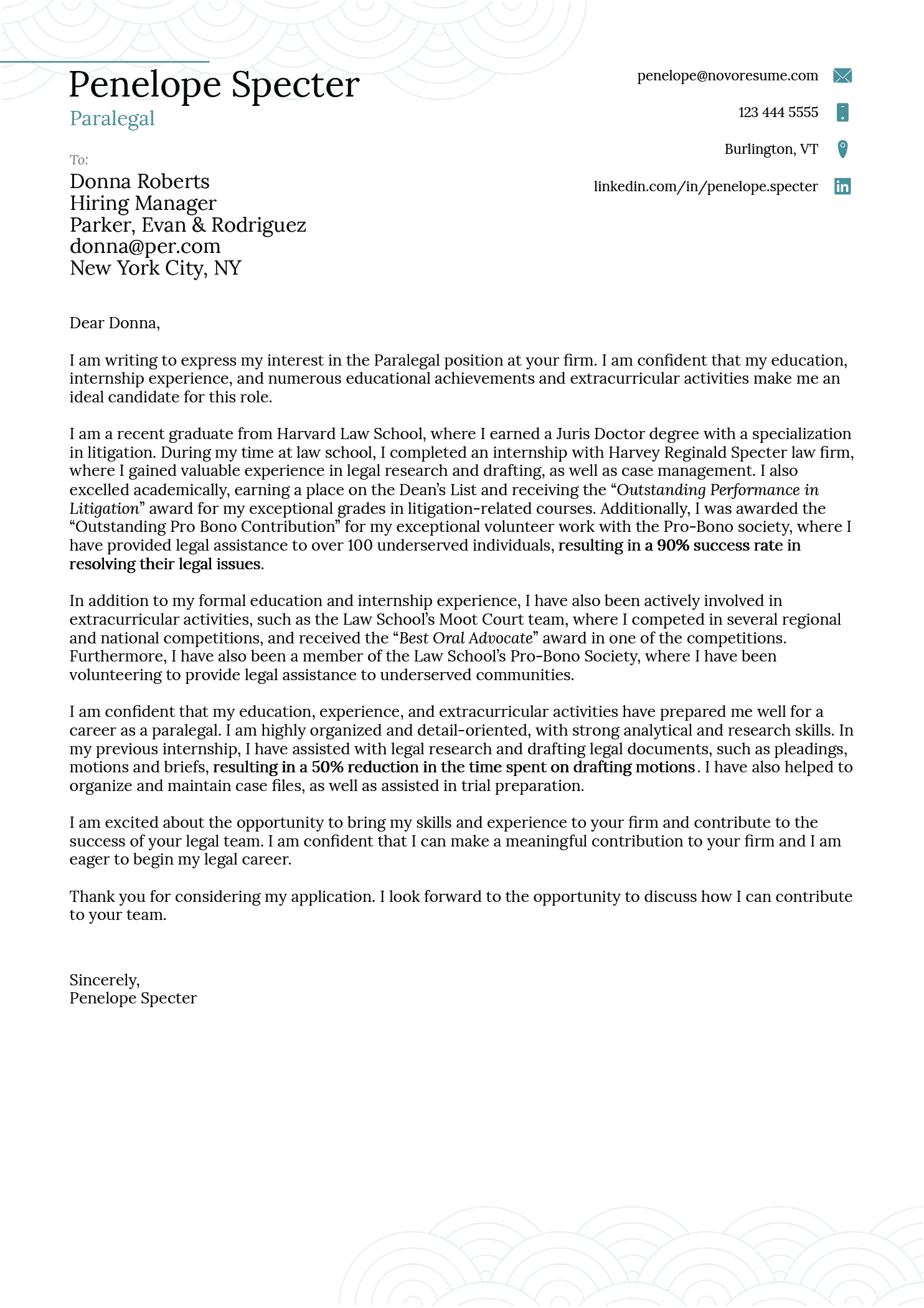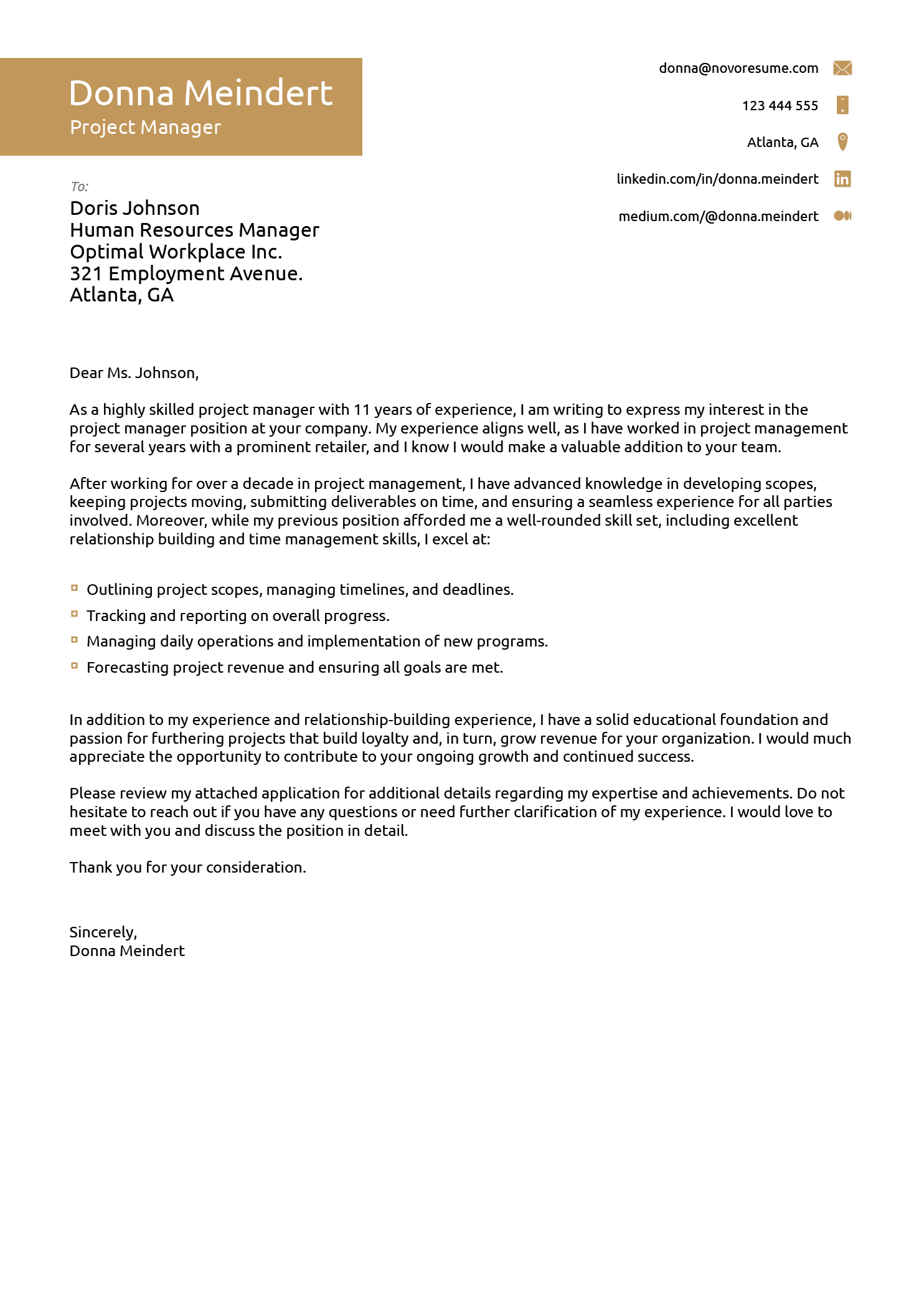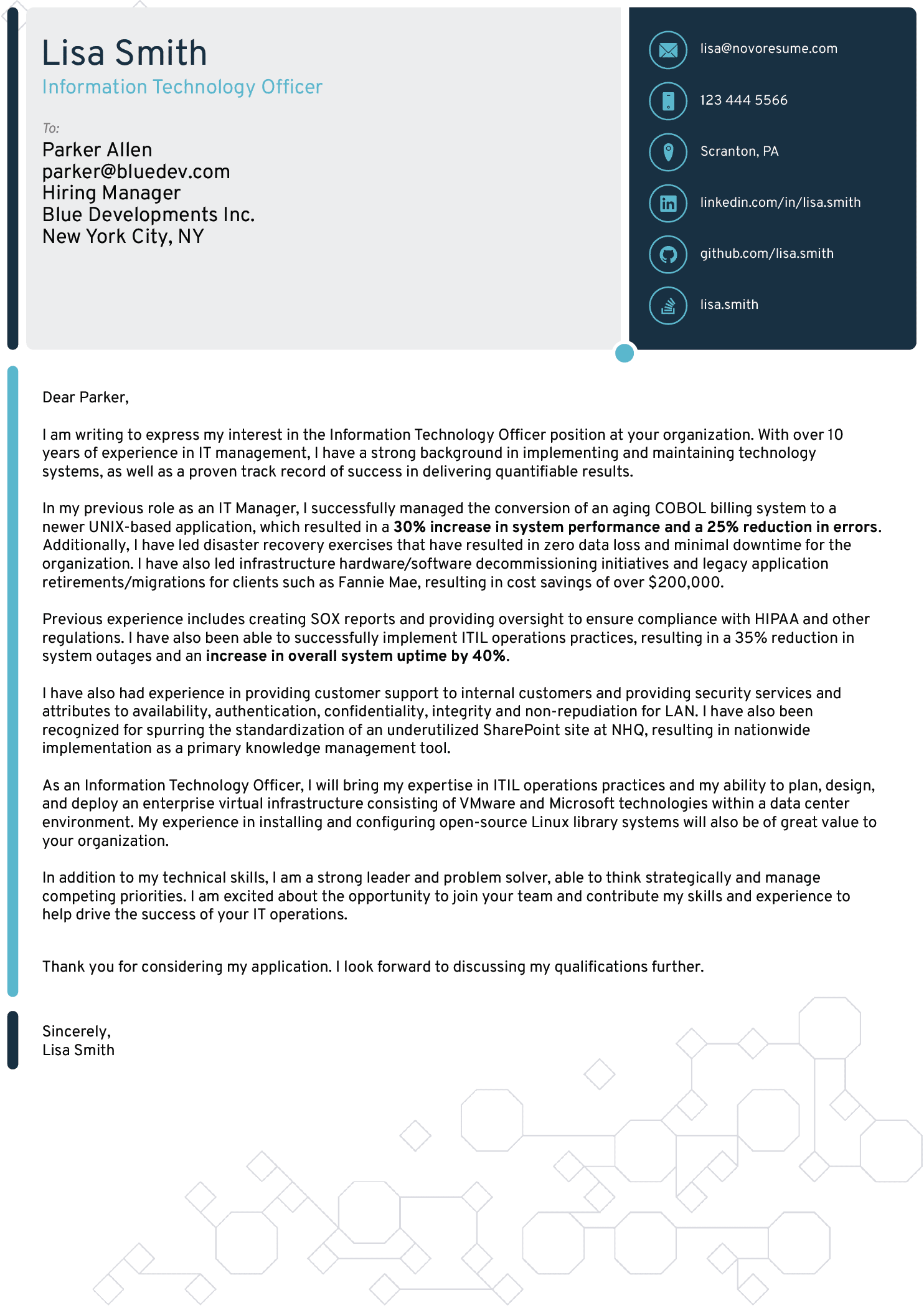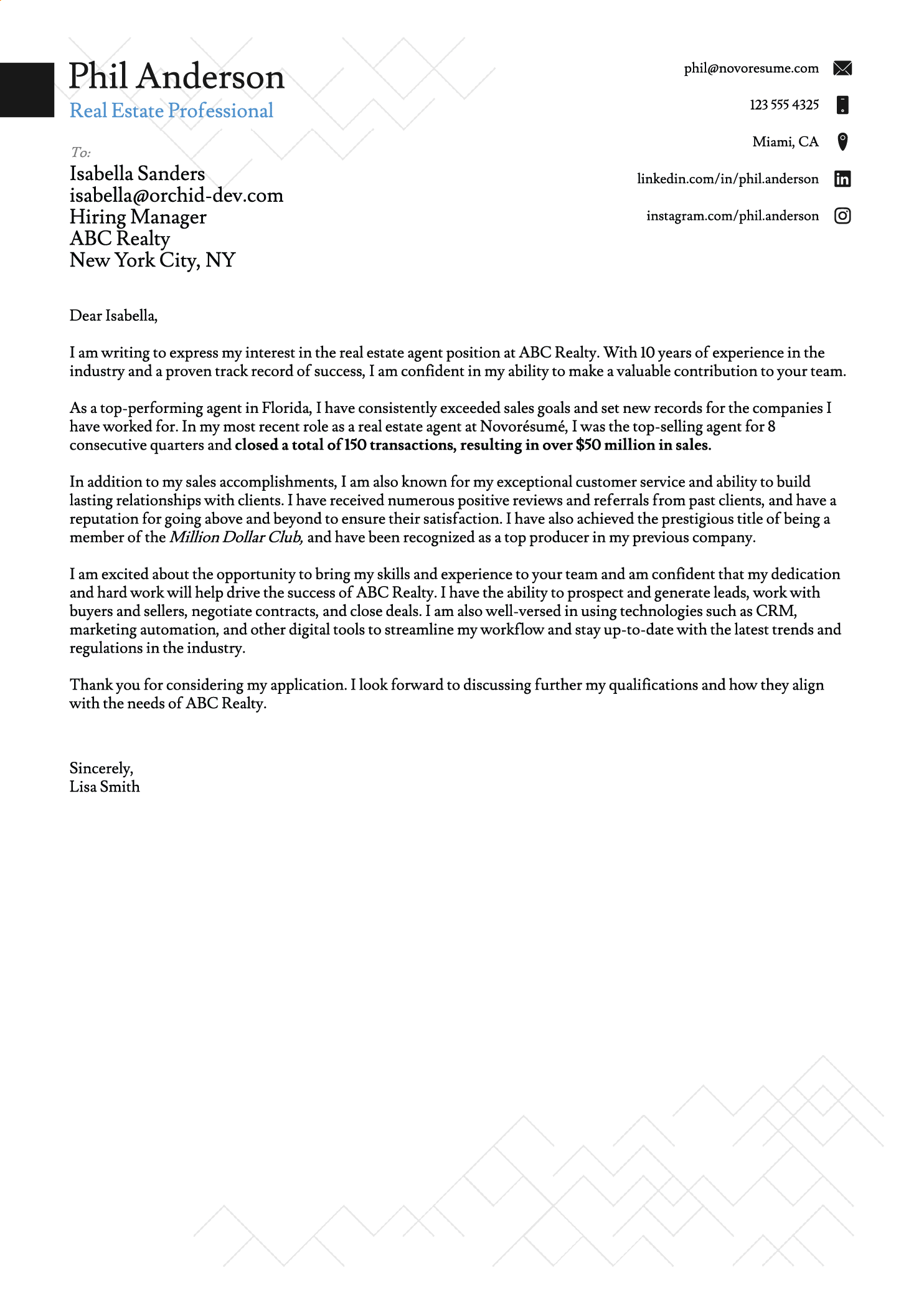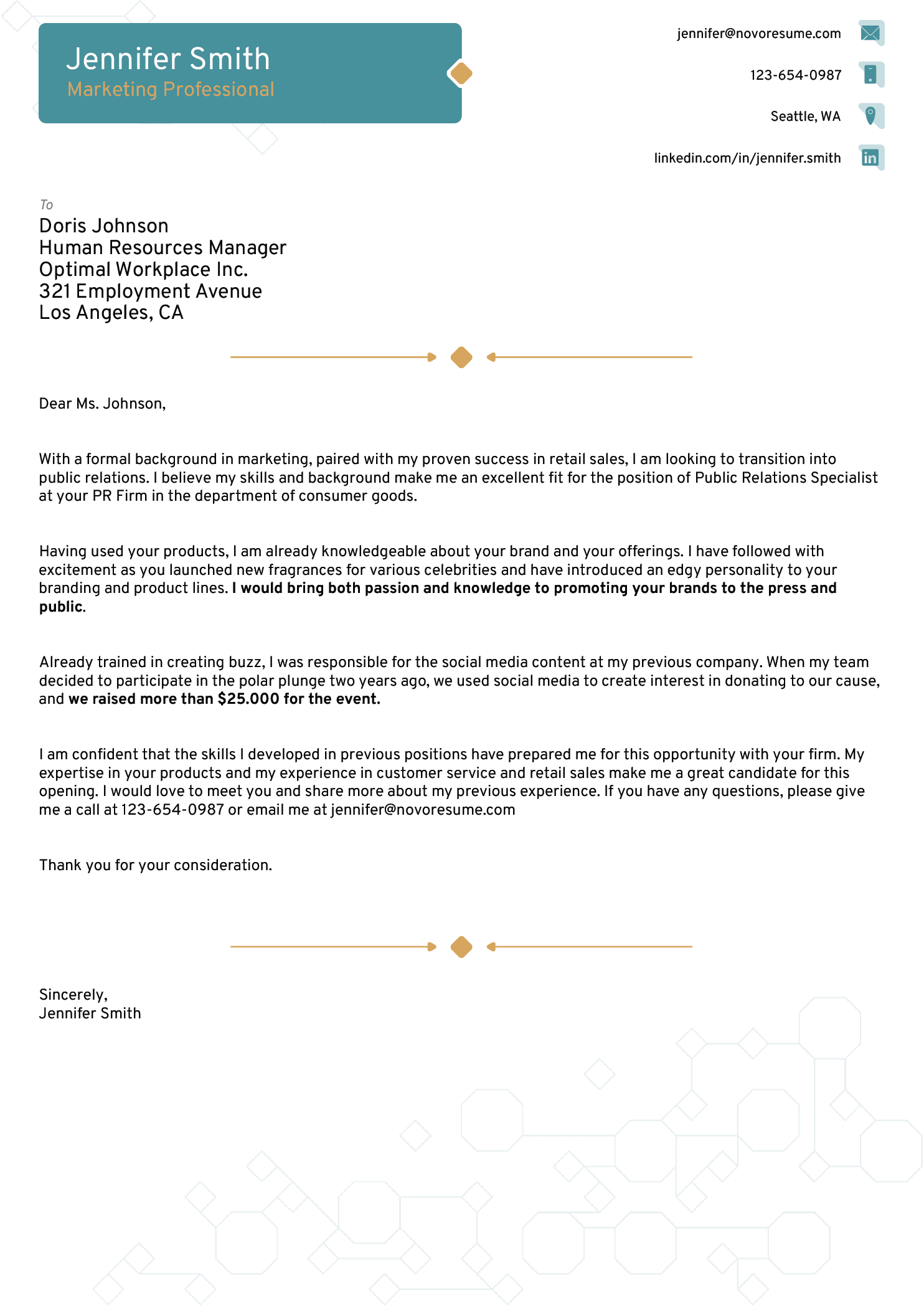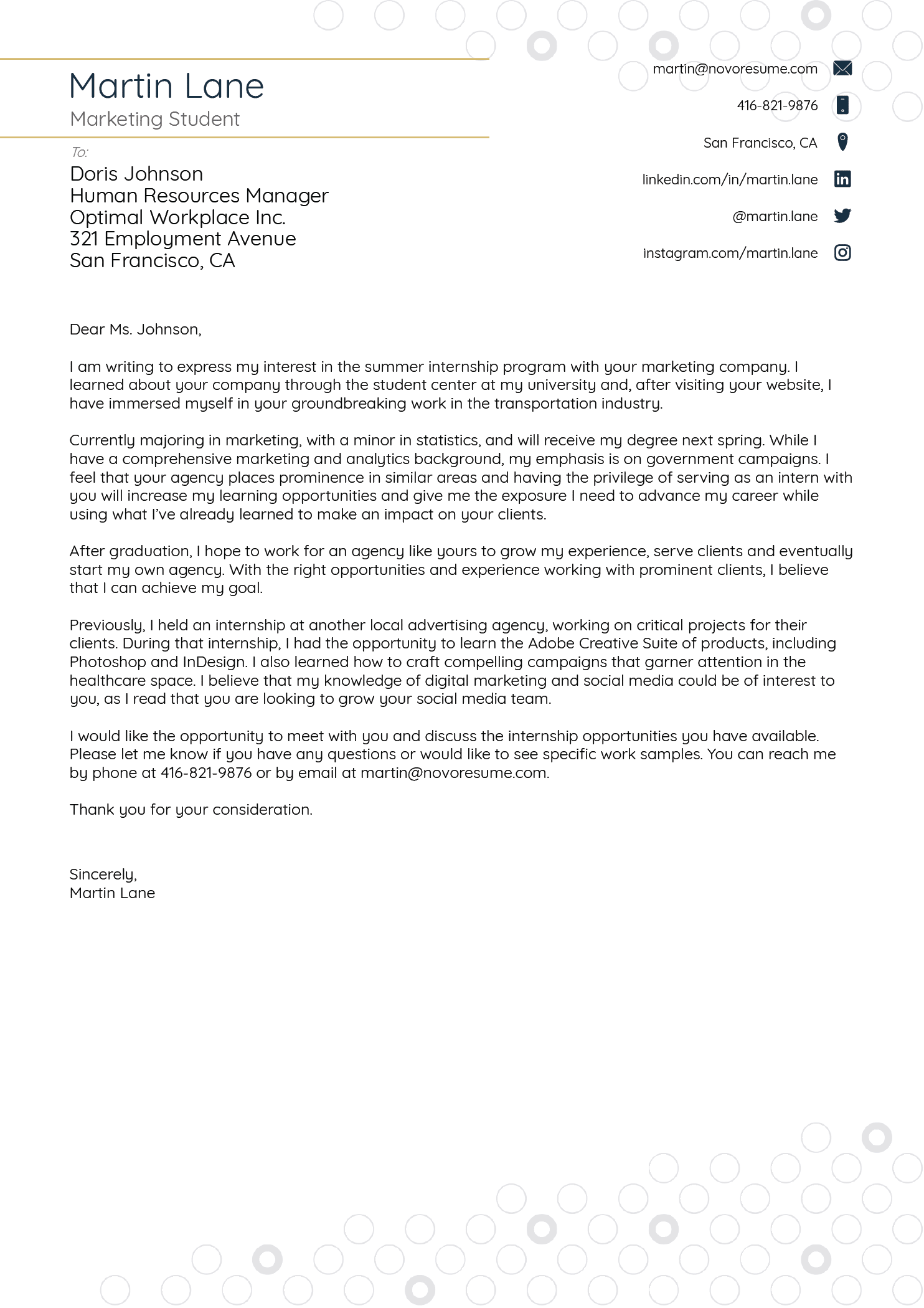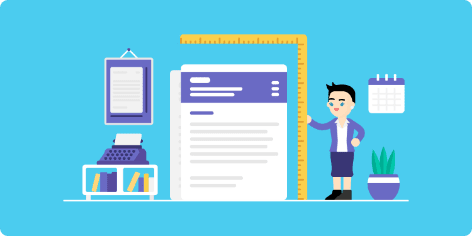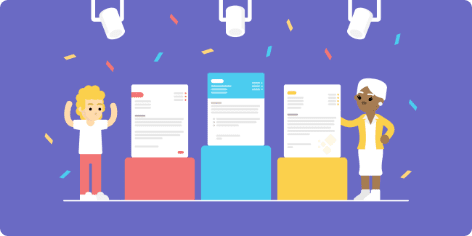Cover Letter Templates
/ any level of experience
Match Your Resume & Cover Letter
Want your application to stand out?
Match your cover letter with your resume & catch the recruiter’s attention!
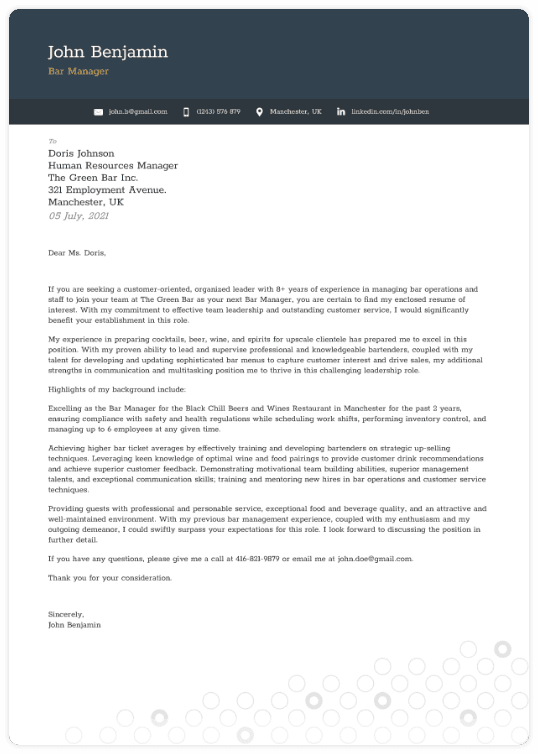
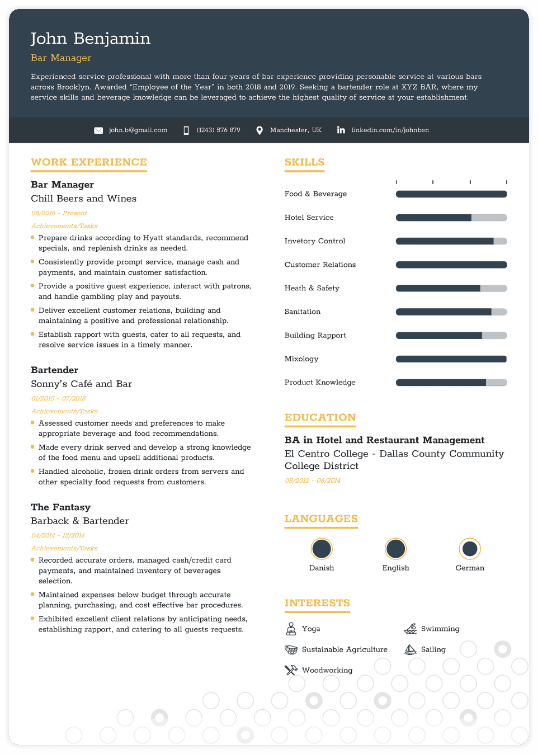
Why Novorésumé?
Matching Cover Letters
To keep your job application consistent and professional, our Cover Letter templates perfectly match the resume templates.
Creative & Standard Templates
Whether you apply for a conservative industry like banking or a hype start-up, you can tailor our cover letter templates to fit your exact needs.
Expert Reviews
Oana Vintila
Career Counselor
Cover Letters are usually synonymous with formal and bland rambling that you write down hoping for an invite to a job interview. I just love it how Novorésumé has enhanced that and is offering you a tool to build proper arguments and structured discourse about who YOU ARE and what YOU CAN DO.
A real confidence booster, I tell you, seeing your motivation eloquently written!
Gabriela Tardea
Career Strategist, Coach & Trainer
The best thing about this platform when creating a Cover Letter as an addition to your resume is that the documents will match each other's design and font, creating eye-catching documents that recruiters/hiring managers will love.
You will be initially judged based on your papers, so why not make a first great impression?
Cover Letters Resources
What is a Cover Letter?
A cover letter is a one-page document that you submit alongside your resume or CV for your job application.
The main purpose of your cover letter is to:
Show your motivation for working at the company
Bring special attention to the most important parts of your work history
Explain how your work experience fits whatever the company is looking for
What your cover letter is NOT about, is rehashing whatever you already mentioned in your resume. Sure, you should mention the most important bits, but it should NOT be a literal copy-paste.
Keep in mind that recruiters will usually read your cover letter after scanning your resume and deciding if you’re qualified for the position.
Our cover letter templates match both our resume templates and our CV templates! Make sure to check them out, too.
Why Use a Cover Letter Template?
A cover letter can complement your resume and increase your chances of getting hired.
But that's only if it's done right.
If your cover letter isn't the right length, is structured the wrong way, or doesn't match the style of your resume, it might do the opposite and hurt your application.
By using a cover letter template, you get a pre-formatted, professional, and recruiter-friendly document that’s ready to go. All YOU have to do is fill in the contents, and you’re all set.
What to Include in Your Cover Letter?
Every good cover letter has the following sections:
Header. Start your cover letter by writing down your own contact information, as well as the recruiter’s (recruiter name, company name, company address, etc…).
Greeting. Preferably, you want to address the recruiter by their last name (e.g. Dear Mr. Brown) or their full name, in case you’re not sure what their pronouns are (e.g. Dear Alex Brown). formal greeting for the recruiter.
Opening paragraph. This is the introduction to your resume. Here, you summarize your background info (“a financial analyst with X+ years of experience”), state your intent (“looking for X position at Company Y”), and summarize your top achievements to get the recruiter hooked.
Second paragraph. In the second paragraph, you explain how you’re qualified for the position by mentioning your skills, awards, certifications, etc., and why the recruiter should pick YOU.
Third paragraph. You talk about why you’re a good match for the company. Do you share common values? Is the company working on projects you’re interested in? Has this position always been your dream role?
Formal closing. Finally, you end the cover letter with a quick summary and a call to action (“I’m super excited to work with Company X. Looking forward to hearing from you!”).
How to Write a Great Cover Letter?
There’s a lot that goes into writing a great cover letter. If you want to get the full picture, you can check out our guide on how to write a cover letter.
For a quick summary, though, here are our top 4 cover letter tips:
Avoid Fluff. You want to be as specific as possible with your cover letter. Avoid vague statements like “I’m a good fit for the company because I’m a good critical thinker!”
Do Your Research. Most companies don’t like people who “spray and pray” - applying for dozens of jobs without giving them much thought. What they ARE looking for is someone who’s passionate about their field, the position, and even the company. So, research the companies you apply for as much as you can and show off your knowledge in your cover letter.
Don’t Use a One-Fits-All Cover Letter. As much as you can, try to tailor your cover letter to the job you’re applying for. Even if it’s something small, like addressing the hiring manager by their last name instead of “Dear Sir/Madam,” or mentioning something specific about the role or the company that you’re passionate about, it can help you prove that you’re not using the same generic cover letter to apply to dozens of jobs.
Back-Up Your Achievements with Data. When possible, back up your experience with data. Instead of saying, “I improved company revenue”, say “I managed to hit and exceed sales KPIs for 5 months in a row.”
How Long Should a Cover Letter Be?
Most recruiters agree that a cover letter should be brief and concise.
Optimally, that’s about half a page to one full page, and between 250 to 400 words long.
How Can I Write a Student Cover Letter?
You should write a student cover letter pretty much the same way you’d write a regular cover letter, with one key difference.
To make up for your lack of work experience, you should talk about the following:
Why do you want to work for the company and the position you’re applying for.
How your educational background has prepared you for the job.
How your skill set can help you stand out and excel at the job.
You also want to mention anything else that’s relevant to the job and that can prove your abilities, such as any internships, awards, honors, and the like.
In case you’re writing a cover letter for an internship, make sure to check out our guide.
How Can I Write a Cover Letter With No Experience?
If you’re an entry-level candidate, writing a cover letter might seem super scary. If you don’t have any work experience and professional accomplishments, what are you supposed to talk about in your cover letter?
Here’s some good news—you can focus on these topics instead:
Education highlights
Relevant skills
Independent projects
Volunteering experience
Passion to learn and grow as a candidate
For a complete guide on how to write an entry-level cover letter, check out our guide.
How to Format a Cover Letter?
Here’s what you need to know on how to format a cover letter the right way:
Choose the right cover letter template for your industry. The better fit the cover letter, the less you’ll have to play with the layout and format.
Use colors sparingly. Don’t go overboard with creativity unless you work in an industry where that’s valued (marketing, advertising, design, and the like).
Select professional font styles and sizes.
Set the margins to 1 inch on each side to make sure there is enough white space and the document doesn’t look crowded with text.
Cover Letter Templates FAQ?
Do I Need a Different Cover Letter for Every Job?
While you don’t need to write a different cover letter from scratch for every single job you apply for, it’s good to tailor your cover letter contents as much as you can to the company and position you’re applying for.
Hiring managers will always go for an applicant who’s interested in their specific position over a candidate that’s sending the same application to dozens of roles.
If you tailor your cover letter to the position, even if it’s something small like addressing the hiring manager by their name or explaining how you possess the right skills for the specific job, your chances of getting hired are going to be much better!
How to Make a Simple Cover Letter for Your Resume?
Simply pick one of our 16 effective cover letter templates above to get started.
We’d recommend matching your cover letter template to the resume template you picked.
Not only will it make your application package look more sophisticated and professional, but it will also make you more memorable for the recruiter who’ll go over your application.
Who Created These Cover Letter Templates?
Novoresume cover letter templates were created in cooperation with professional recruiters and hiring managers.
This means they’re up to date with the latest industry trends and job market requirements. With a Novoresume cover letter template, you can rest assured that your cover letter will look professional and modern at the same time.
When Should I Email My Cover Letter Instead of Using a Template?
As a rule of thumb, it’s always better to use a cover letter template instead of including it in the body of your email as plain text. By using a well-designed and effective cover letter template, you’re guaranteed to look like a more serious and professional candidate.
So, you should only email your cover letter if the job ad specifically asks you to.
Should I Use a PDF or Word Cover Letter Template?
We recommend going for a PDF cover letter template instead of Word.
All types of Operating Systems and devices can open PDF formats without ruining the formatting, design, or layout.
The same, however, cannot be said for Word templates. If, for example, you’ve used a 2021 Word cover letter template and the hiring manager opens it using an MS Word 2016 software version, there’s a chance your formatting will get messed up, or that your font will be unreadable.
To err on the side of caution, we always advise using a PDF cover letter template.
What is the Best Cover Letter Template in 2025?
There’s no such thing as the “best cover letter template.”
After all, every single recruiter has their own personal taste. Some might like a shiny and flashy cover letter template, while others might think it’s tacky. As a rule of thumb, though, we usually recommend customizing each cover letter for the company you’re sending it to.
Do I Really Need a Cover Letter in 2025?
Yes, you definitely need to submit a cover letter with your resume in 2025.
Even if the hiring manager never reads your cover letter or if the job description doesn’t specifically ask for one, a cover letter can still help strengthen your application and make you look like a more serious and proactive candidate.
As such, it’s always a good idea to include a cover letter with your resume.
How to Make a Cover Letter With Novoresume?
To make a cover letter with Novoresume, simply scroll up and pick a template that you like best. Then, register or log in to your Novoresume account. From there, you can add your cover letter contents, as well as personalize and edit them as you see fit.
The Novoresume builder is very intuitive and user-friendly, allowing you to create your cover letter lightning-fast.

